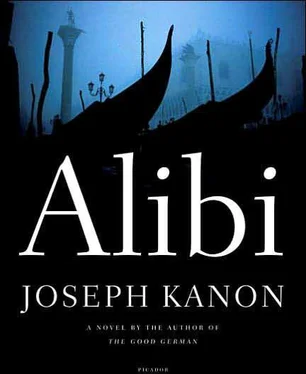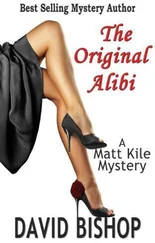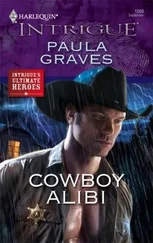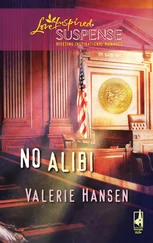Joseph Kanon - Alibi
Здесь есть возможность читать онлайн «Joseph Kanon - Alibi» весь текст электронной книги совершенно бесплатно (целиком полную версию без сокращений). В некоторых случаях можно слушать аудио, скачать через торрент в формате fb2 и присутствует краткое содержание. Жанр: Триллер, на английском языке. Описание произведения, (предисловие) а так же отзывы посетителей доступны на портале библиотеки ЛибКат.
- Название:Alibi
- Автор:
- Жанр:
- Год:неизвестен
- ISBN:нет данных
- Рейтинг книги:3 / 5. Голосов: 1
-
Избранное:Добавить в избранное
- Отзывы:
-
Ваша оценка:
- 60
- 1
- 2
- 3
- 4
- 5
Alibi: краткое содержание, описание и аннотация
Предлагаем к чтению аннотацию, описание, краткое содержание или предисловие (зависит от того, что написал сам автор книги «Alibi»). Если вы не нашли необходимую информацию о книге — напишите в комментариях, мы постараемся отыскать её.
Alibi — читать онлайн бесплатно полную книгу (весь текст) целиком
Ниже представлен текст книги, разбитый по страницам. Система сохранения места последней прочитанной страницы, позволяет с удобством читать онлайн бесплатно книгу «Alibi», без необходимости каждый раз заново искать на чём Вы остановились. Поставьте закладку, и сможете в любой момент перейти на страницу, на которой закончили чтение.
Интервал:
Закладка:
I looked at my hands again. No rust. But I grabbed the brush anyway and ran it over my nails, pulling the skin back to get the bristles in under the rims. Back and forth, scouring, until they were pale. I sank against the tub, relieved. It was gone; I’d caught it in time. What else? I closed my eyes for a second, back in the dim light of the downstairs hall, seeing everything again, the brocade chair I’d used to pull myself up, the sconce where he’d hit his head, the smug face over the white shirtfront.
I sat up, eyes wide open. The smallest thing could give you away. I got out of the tub quickly and toweled off, and grabbed a robe. No time to dress. The maids would be asleep anyway. I went down and crossed through the piano nobile. No light was coming from the sitting room-my mother must have finally gone up. Down the main stairs, grateful for the carpeting, steps that didn’t creak.
The marble in the hall was cold on my bare feet. I walked over to the door of the room where I’d waited. Reconstructing. He’d had his cigarette here. But I’d already cleaned the ashtray. I’d backed him into the wall there-exactly which sconce? I took a handkerchief and wiped both, looking for any smears, flakes of blood. What if one of the maids came? Then he’d pushed me here. I walked slowly, trying to move with the fight in my head to the spot where he’d lost it, where the shirt stud had popped out. A tiny thing, not even thought of until the bath, but lying here somewhere, waiting to give us away.
I got down on my hands and knees and felt along the dark floor under one of the side tables. It might have rolled, might be anywhere. Every inch, if I had to. They’d know it was his. I patted the floor in front of me. If I turned on the lights, someone would get up, come down to investigate, and then I’d make up something else and someone would ask about that and-an endless spiral of detail, easy to slip up.
I moved my hand in front of me, barely touching the marble, hovering over it like a mine sweeper. The stud must have rolled until it hit the wall. I ran my hand along the edge of the room, then stopped, thinking I’d heard a sound upstairs. I held my breath for a minute, listening, but there was only the water lapping outside, the faint creaking of the boat pulling against its rope. Yes, we’d been near this end, the stud popping out of the shirt. Maybe with blood on it-even more damaging.
I kept feeling my way along the floor, carefully sweeping around the table legs, the crevices where it might hide forever, until they found it. And then there it was. Round, smooth metal, the gold warm even in the dim light. I snatched it and looked at it. The smallest thing. I went to put it in my pocket, then decided to keep it in my hand, to feel it until I could get rid of it in the deep water off the Zattere. Then everything would be all right again.
I put my left hand up to my forehead, surprised to find that I was sweating again, even with my feet cold on the floor. But my whole body was awake, and I knew then what it was going to be like, even when it was all right, a wariness that took over your life, what happened to animals, who either killed or became prey.
CHAPTER NINE
Il Gazzettino had two full pages on Mimi’s ball, mostly pictures of women in gowns and couples standing together, but nothing about Gianni. Cavallini, however, had started his investigation, already up while the rest of Venice slept in, gray and hung over from the night before. His men badgered Gianni’s household staff, questioning them over and over to hear what they’d already heard: Dr. Maglione had left before eight, dressed for the party. He went in the direction of Santo Stefano, presumably headed for the Accademia bridge. He had been in good spirits.
Policemen made some random checks of the canals along the route, but no body had been spotted, no suspicious object had bobbed to the surface. Gianni’s daughter had been called in Bologna and, bewildered, asked if she should come right away and was told to wait until they had more information. His assistant at the hospital was asked to go through his patient list to see if there was anyone he might have stopped to visit. In a small city like Venice, only a few calls from the Questura were necessary: by midmorning everyone knew Gianni was missing. The police had now begun questioning the hotels.
“The hotels?” my mother said. “Why on earth would he go to a hotel?” She was back in the chair beside the ashtray, looking haggard under her fresh morning makeup.
“It’s a procedure, signora,” Cavallini said. “We always ask the hotels, for everything that happens in Venice.” He stopped, putting down his coffee. “It’s not for him, you see. But you must prepare yourself for this-if there has been a crime, there are two people to look for, not just the victim. There is the other. So, anything suspicious.”
“Crime?” my mother said, whose imagination up till now had ended with a heart attack.
Cavallini spread his hands. “We don’t know, signora. Perhaps he saw a crime, a burglary, and then someone had to-”
“But were there any? Burglaries, I mean. Surely that would have been reported.”
“Not as yet,” Cavallini said. He looked at her, his voice soothing. “We don’t know.”
I sipped my coffee, trying not to show any expression. Hotels. Burglaries. No suspicion at all. The desk clerk would confirm what Claudia said, the time she left, the time she came back. With me. Who later was seen by Cavallini himself-a perfect circle.
I had expected to spend the day in a void, dreading any knock on the door, but now I saw that Cavallini’s personal interest gave us a peephole at the Questura-what they were doing, what they were saying, looking everywhere but here. When he left, promising to report later, I took a few minutes to look over the water entrance. Maybe a film of blood had stuck to the canal steps like a bathtub ring, maybe some stains had soaked into the marble. But everything was clean, even tidy, the paving stones piled neatly under the tarp, no smears on the damp floor. Nothing on the boat outside, washed by rain. One of the cleaning women would do the entrance hall today, swabbing down the marble floor, wiping away every mark, every trace. I went back upstairs.
“You don’t have to stay,” my mother said, feet up under an afghan now that Cavallini was gone.
“Of course I’ll stay.”
“No, don’t. I know you. You’ll moon around and treat me like bone china. And I’m not, you know. I won’t break.”
“Somebody has to answer the phone.”
“Oh god, it’s going to start, isn’t it? All the friendly little calls. And we can’t not answer,” she said, shooting me a glance. “What if it’s the police?”
So I spent the rest of the day at home, making cups of tea while my mother retreated into herself. She made no pretense of passing the time by reading, playing cards. She was waiting. She would walk over to the window, then back, absorbed in a world of her own, not even hearing the phone. She smoked and drank tea, thanking me in a voice so abstracted it was almost a monotone, like that of someone who’d taken painkillers and become vague. I fielded Mimi and Bertie and everyone else who called, an afternoon of them, all eager for news, sniffing drama. “She thinks he’s left me,” my mother said when Celia called. “Walked out on me.” So far from what Celia or anyone was thinking that for a second I wondered if she had, in fact, taken pills.
I looked at Il Gazzettino again. Mimi with stars in her hair. The man she called Ernesto, evidently someone important. Not the picture of us with the police, but Cavallini would remember it, which was all that mattered. When exactly had my mother called? While we played and someone else rowed out to the lagoon.
Читать дальшеИнтервал:
Закладка:
Похожие книги на «Alibi»
Представляем Вашему вниманию похожие книги на «Alibi» списком для выбора. Мы отобрали схожую по названию и смыслу литературу в надежде предоставить читателям больше вариантов отыскать новые, интересные, ещё непрочитанные произведения.
Обсуждение, отзывы о книге «Alibi» и просто собственные мнения читателей. Оставьте ваши комментарии, напишите, что Вы думаете о произведении, его смысле или главных героях. Укажите что конкретно понравилось, а что нет, и почему Вы так считаете.












